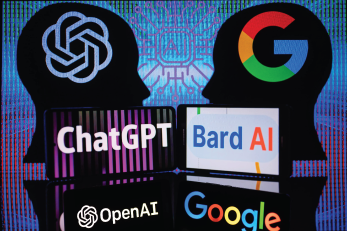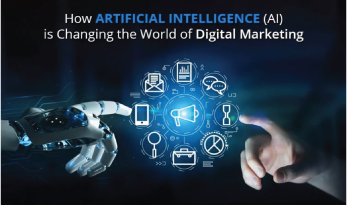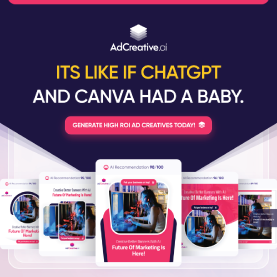I. Introduction
The way businesses approach marketing has dramatically shifted in the last decade. Social media has evolved from a casual platform for connections into a vital tool for brand growth and customer engagement. But managing effective social media campaigns can be daunting without the right tools. Enter Artificial Intelligence (AI): the game-changer that’s reshaping how marketers plan, execute, and measure their strategies.
This guide explores how AI can supercharge your social media marketing efforts, with actionable tips and examples that showcase its power. Whether you’re new to AI or looking to refine your approach, this guide will help you navigate this exciting frontier.
II. The Importance of AI in Social Media Marketing
A. Evolution of Social Media Marketing
Social media marketing has transitioned from simple, static posts to dynamic, data-driven strategies. In the past, marketers relied heavily on manual effort to design campaigns and analyze results. Today, AI allows businesses to manage these processes with unmatched precision and efficiency.
B. Why AI Matters
AI transforms social media marketing by:
- Enhancing Efficiency: Automating repetitive tasks like scheduling and reporting.
- Improving Targeting: Using data to identify and engage with the right audience.
- Driving ROI: Providing actionable insights that lead to better campaign performance.
C. Data-Driven Decision-Making
At the core of AI’s success is its ability to analyze vast amounts of data in real time. This enables marketers to:
- Identify trends and preferences.
- Tailor campaigns to specific audience segments.
- Predict future outcomes and adapt strategies accordingly.
III. Key AI Applications in Social Media Marketing
A. Content Creation and Curation
One of AI’s most powerful applications is its ability to create and curate content. Tools like ChatGPT and Jasper help generate:
- Engaging Posts: Craft compelling captions and post copy.
- Visual Content: AI-powered design tools like Canva and Adobe Sensei create visually appealing graphics.
- Personalized Content: AI uses audience data to tailor messaging for specific demographics.
B. Chatbots and Customer Interaction
AI-driven chatbots, like ManyChat and ChatGPT, revolutionize customer engagement by:
- Providing Instant Responses: Answering queries 24/7.
- Guiding Purchases: Offering product recommendations and support.
- Enhancing User Experience: Delivering seamless, personalized interactions.
C. Social Listening and Sentiment Analysis
AI tools like Brandwatch and Sprout Social monitor social media for mentions and feedback. This helps marketers:
- Understand Brand Perception: Gauge customer sentiment through real-time analysis.
- Identify Trends: Act on emerging discussions related to your industry.
- Refine Strategies: Use insights to shape campaigns that resonate with your audience.
D. Ad Campaign Optimization
AI optimizes ad campaigns through platforms like Facebook Ads Manager and Google Ads by:
- Dynamic Targeting: Adjusting audiences based on performance metrics.
- Predictive Analytics: Forecasting which ads will perform best.
- Budget Management: Allocating funds to maximize impact.
IV. Strategies for Implementing AI in Social Media Marketing
A. Choosing the Right AI Tools
Not all AI tools are created equal. Here’s how to pick the best one for your needs:
- Define Your Goals: Are you looking to automate tasks, improve content, or analyze data?
- Research Tools: Platforms like Hootsuite, Buffer, and HubSpot offer comprehensive features.
- Test Features: Use free trials to ensure the tool meets your requirements.
B. Personalizing Content and Engagement
AI excels at personalization. Use it to:
- Segment Audiences: Group users by behavior, interests, and demographics.
- Deliver Tailored Messages: Customize posts, emails, and ads to individual preferences.
- Create Real-Time Recommendations: Suggest products or services based on user activity.
C. Automating Routine Tasks
Let AI handle time-consuming tasks such as:
- Post Scheduling: Tools like Buffer automate publishing across multiple platforms.
- Performance Reporting: AI generates detailed analytics reports in seconds.
- Trend Monitoring: Stay ahead of industry developments with real-time updates.
D. Continuous Testing and Improvement
Use AI for A/B testing to:
- Evaluate Content: Test different versions of posts to see what resonates.
- Refine Campaigns: Adjust strategies based on performance data.
- Optimize Timing: Identify the best times to post for maximum engagement.
V. Challenges and Limitations of AI in Social Media
A. Data Privacy Concerns
With AI’s reliance on user data, maintaining privacy is paramount. Marketers must:
- Comply with regulations like GDPR and CCPA.
- Be transparent about data usage.
- Use secure platforms to protect user information.
B. Over-Reliance on Automation
While AI simplifies processes, over-automation can lead to:
- Loss of authenticity in brand voice.
- Reduced human creativity in content creation.
- Missed opportunities for genuine engagement.
C. Keeping Up with Evolving Algorithms
Social media platforms frequently update their algorithms. Staying updated ensures:
- AI tools remain effective.
- Campaigns align with platform best practices.
VI. Case Studies: Successful AI Marketing Campaigns
A. Brand A: Leveraging AI for Engagement Growth
- Overview: Used AI to analyze user behavior and tailor content.
- Results: 35% increase in engagement within three months.
B. Brand B: AI-Powered Ad Optimization
- Overview: Implemented predictive analytics for ad targeting.
- Results: Achieved a 50% reduction in cost per acquisition.
C. Lessons Learned
- The importance of testing and iteration.
- Balancing automation with a human touch.
- Continuously analyzing results to refine strategies.
VII. Future Trends in AI Marketing for Social Media
A. Rise of Generative AI
Generative AI tools like DALL-E and ChatGPT create immersive experiences through:
- Visual storytelling.
- Interactive content generation.
B. Enhanced Predictive Analytics
AI will soon anticipate:
- User needs with greater accuracy.
- Emerging trends before they gain mainstream traction.
C. Integration with Emerging Technologies
AI’s synergy with AR/VR opens new doors for:
- Interactive shopping experiences.
- Virtual events and campaigns.
VIII. Conclusion
Artificial intelligence is revolutionizing social media marketing, providing tools that enhance efficiency, engagement, and ROI. By leveraging AI, marketers can craft personalized, data-driven campaigns that resonate with audiences and achieve business goals.
Now is the time to embrace AI and explore its possibilities. As you implement these strategies, remember: the future of marketing is not just powered by AI; it’s defined by it.


